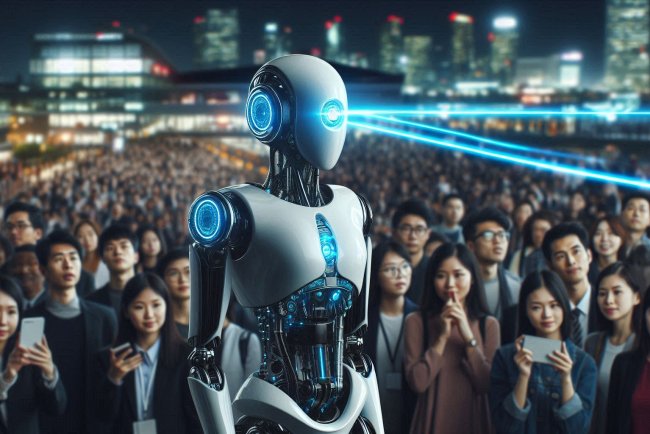AI workforce: Workforce development and training in AI
Discover how AI is revolutionizing workforce development and training. Explore the latest trends and strategies to upskill your team in AI technologies.

Workforce Development and Training in AI
Artificial Intelligence (AI) is rapidly transforming industries and creating new job opportunities across various sectors. As AI continues to evolve, it is essential for organizations to invest in workforce development and training to ensure that employees have the necessary skills to leverage AI technologies effectively. Here are some key considerations for workforce development and training in AI:
Identifying Skills Gaps
One of the first steps in developing a successful AI workforce is identifying skills gaps within the organization. This can be done through skills assessments, surveys, and interviews with employees to determine the current skill levels and areas where additional training is needed. Common AI-related skills gaps include knowledge of machine learning algorithms, data analysis, programming languages such as Python and R, and understanding of AI ethics and regulations.
Creating a Training Strategy
Once skills gaps have been identified, organizations can develop a comprehensive training strategy to upskill employees in AI technologies. This may involve a combination of in-house training programs, online courses, workshops, and certifications. It is important to tailor training programs to the specific needs of employees and provide opportunities for hands-on experience with AI tools and technologies.
Collaborating with Educational Institutions
Another effective way to develop AI talent within an organization is to collaborate with educational institutions to offer specialized training programs or apprenticeships. Universities and colleges often have expertise in AI research and can provide valuable resources and support for workforce development initiatives. By partnering with educational institutions, organizations can access the latest AI knowledge and best practices to train their employees effectively.
Encouraging Continuous Learning
AI is a rapidly evolving field, and it is essential for employees to engage in continuous learning to stay up-to-date with the latest trends and technologies. Organizations can encourage continuous learning by providing opportunities for employees to attend conferences, workshops, and online courses, as well as by offering incentives for completing certifications and acquiring new skills. By fostering a culture of continuous learning, organizations can ensure that their workforce remains competitive in the AI landscape.
Building Cross-Functional Teams
AI projects often require collaboration across various departments, including data science, engineering, and business operations. Building cross-functional teams with a diverse set of skills and expertise can help organizations effectively implement AI initiatives and drive innovation. By bringing together employees from different backgrounds, organizations can foster creativity and problem-solving skills that are essential for successful AI projects.
Promoting Diversity and Inclusion
Diversity and inclusion are crucial for building a strong AI workforce that reflects the needs and perspectives of a diverse customer base. Organizations should prioritize diversity in hiring and training initiatives to ensure that employees from underrepresented groups have equal opportunities to participate in AI projects. By promoting diversity and inclusion, organizations can benefit from a wider range of ideas and perspectives that can lead to more innovative solutions and better business outcomes.
Measuring Impact and ROI
It is important for organizations to measure the impact of their workforce development and training initiatives to ensure that they are achieving the desired outcomes. This may involve tracking key performance indicators such as employee satisfaction, skills proficiency, and project success rates. By monitoring the impact of training programs, organizations can make data-driven decisions to optimize their workforce development strategies and maximize return on investment in AI talent.
Addressing Ethical and Social Implications
As AI technologies become more prevalent in society, it is essential for organizations to address ethical and social implications in their workforce development and training programs. This may involve incorporating training on AI ethics, bias detection, and responsible AI practices to ensure that employees understand the potential risks and impact of AI technologies on society. By fostering a culture of ethical AI practices, organizations can build trust with customers and stakeholders and mitigate potential risks associated with AI implementation.
Conclusion
In conclusion, workforce development and training are critical components of building a successful AI workforce that can drive innovation and competitive advantage for organizations. By identifying skills gaps, creating a comprehensive training strategy, collaborating with educational institutions, and promoting diversity and inclusion, organizations can develop a strong AI talent pipeline that is equipped to meet the evolving demands of the AI landscape. By investing in workforce development and training, organizations can ensure that their employees have the skills and knowledge needed to leverage AI technologies effectively and drive business growth in the digital age.
What's Your Reaction?

















